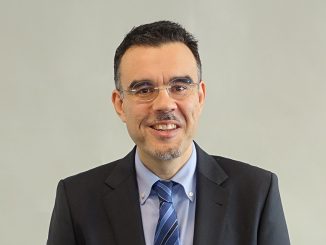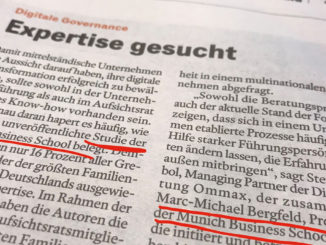
What challenges and changes does the format of online teaching actually entail for professors? In the interview, MBS Vice Deans Prof. Dr. Patrica Kraft and Prof. Dr. Heiko Seif report on their experiences and look optimistically into the future. Wiebke Lehnert, Marketing & Communication Manager at MBS, spoke with the two professors.
Since 16 March, the lectures of Munich Business School have been held exclusively online. The changeover to online teaching took place within a few days. As a professor, how did you perceive the changeover?
Prof. Dr. Patricia Kraft: The switch to online teaching came suddenly, but not unprepared. For some time now, we have been working on a digital strategy for teaching and even before Corona, we used online teaching elements regularly, selectively and in individual courses. At the end of February we had another meeting with an external service provider to roll out online lectures – quite independently of the developments around the corona virus. We have planned a new pilot for fall 2020. At that time, nobody could foresee that just less than three weeks later all lectures would be held online.
Prof. Dr. Heiko Seif: It is incredible how quickly things can be realized when it has to be done all at once and the barriers in the head are removed first. Regarding the project to roll out online teaching, the corona virus really saved us money, because in the end we managed this step without the external service provider.
You mentioned the “barriers in the head”, Mr. Seif. In fact, I can imagine that not all professors were as relaxed about the changeover to online teaching as you were, who has already dealt with digitalization in detail from a professional perspective. There are certainly topics and content that can be easily presented online, but also others where it is more difficult.
Prof. Dr. Heiko Seif: Absolutely right. Communication, exchange and mutual support were the keys to success here. In the four days between the decision and the implementation of online teaching, we offered trainings on Microsoft Teams. This was already an important milestone. In addition, professors with more experience and affinity for the subject met with less experienced colleagues to clarify detailed questions. And before the first lectures went live, there were trial lectures, checks on IT and possible virtual interaction possibilities with the students over the weekend.
Prof. Dr. Patricia Kraft: And this solidarity and exchange within the faculty continues until today. We have set up our own team to exchange experiences, and at our virtual Professors Roundtable recently, the exchange, the atmosphere and the presence were particularly good, which is great! We also use virtual bilateral meetings – e.g. a virtual joint coffee break in the morning – to balance out the informal exchange of information that otherwise takes place at MBS in the offices or at the coffee machine. The switch to online teaching has created a whole new dynamic in all of us. Even though we professors and, of course, many other colleagues for example from the program organization, had to put up with a lot of extra work, it was definitely worth it, because this was the only way we could guarantee our students a seamless continuation of the semester.
How do the students get along with online teaching? Do you notice any differences in interaction?
Prof. Dr. Heiko Seif: Personally, I don’t notice much difference in the interaction with the students. Most students are actually just happy and grateful that they can continue their studies without major losses. This understanding is not self-evident; it shows that a close community, a good exchange and the feeling of MBS as a home base are essential success factors for change processes. Many of the planned events, such as guest lectures by representatives from business and industry, are also available in online format – we had already arranged and organized this early on. Sure, many of our international students who have returned to their home countries are now facing new challenges and it is certainly not without effort to organize group work spread all over the world or to attend lectures always late in the evening or early in the morning, but at the latest when the professor says that she is also sitting in her pyjamas at 8 am, everyone is back on board (laughs).
What is the further planning? How are the final exams, which are usually conducted at Munich Business School in May, organized?
Prof. Dr. Patricia Kraft: Nobody can say how long the current situation will continue. For us as a university, it is also clear that we cannot make ourselves dependent on political decisions and that we sometimes have to react faster. Because even if the exit and travel restrictions were to be lifted at the beginning of May, we must also see that our students abroad cannot return to Germany within a few days to take an exam. Therefore, we have decided to finish the semester online and not to offer any more attendance formats until the end of April. Also for the final exams in all programs, with a few exceptions in the Bachelor program, the lecturers, in cooperation with the academic directors and the Examination Office, have worked out alternative examination formats that do not require attendance. The few attendance exams in the Bachelor Program International Business will take place at the beginning of September with the start of the fall term. It is now important to use our flexibility, agility and newly acquired expertise in the field of online teaching for the future. In this way, we want to make it possible for international students to study at MBS also for the fall term 2020 by enabling them – should it be necessary – to study online first and arrive on campus later.



